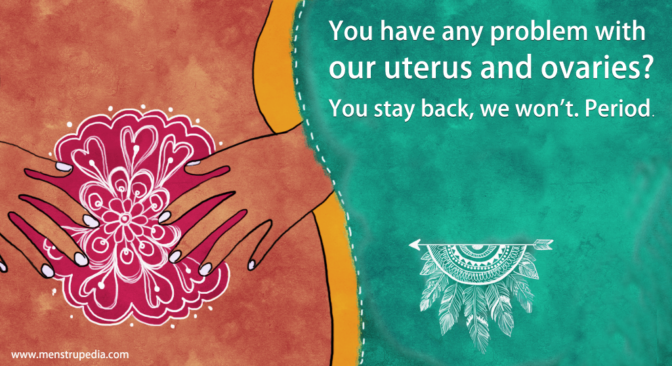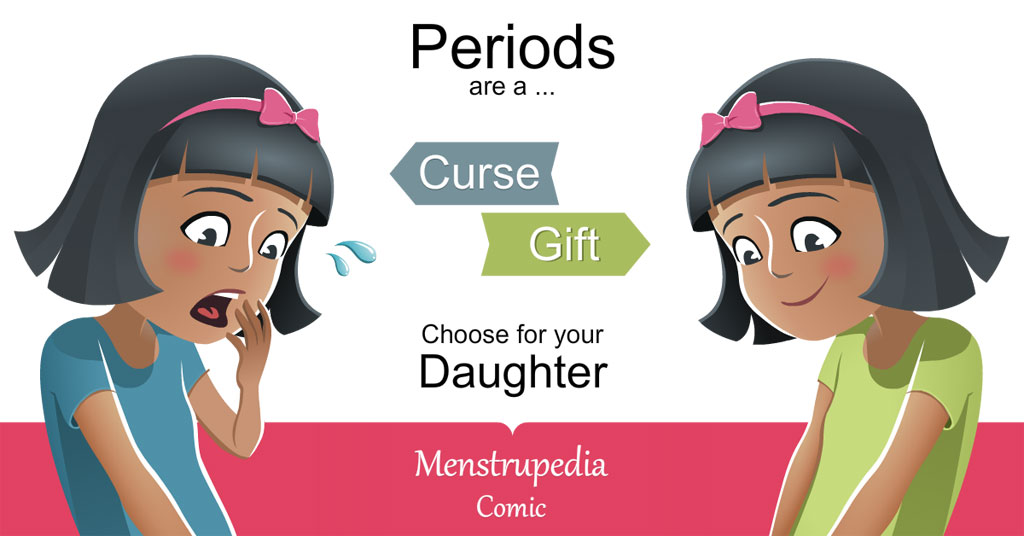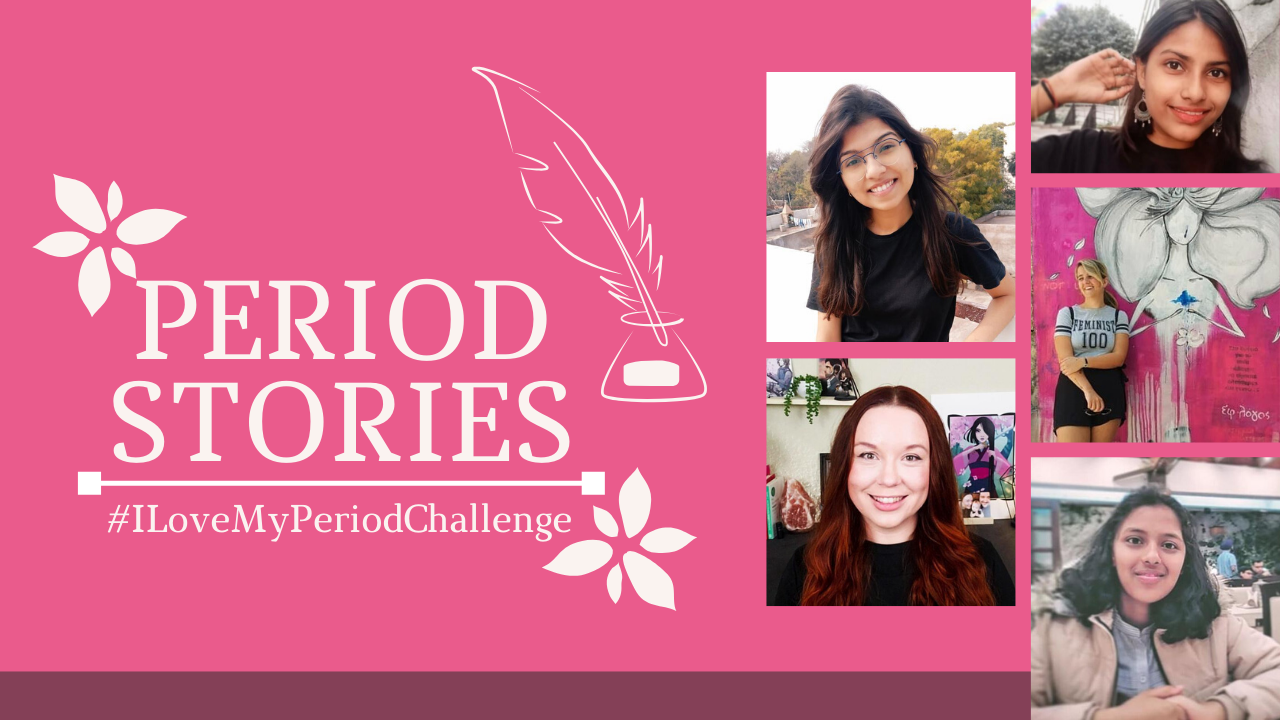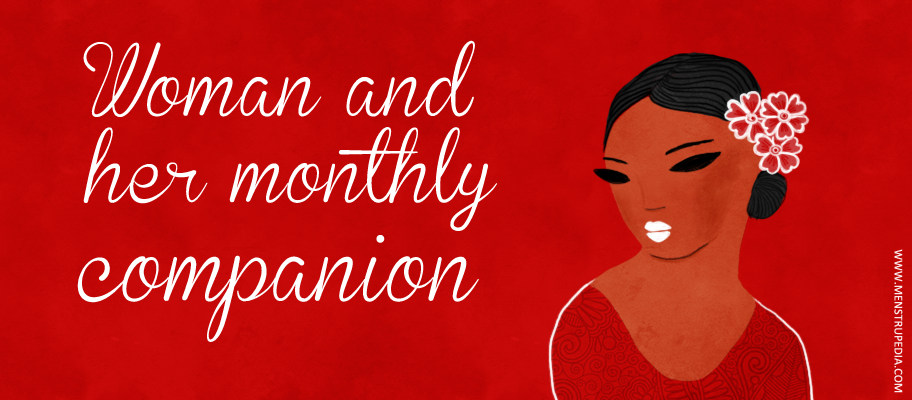When I was in grade 10, I made my first stain. I did not panic, did not get alarmed, never worried. Instead, I looked out for my sister at home and informed her about it, smiling. She shook my hand and said, “Wow, congrats!” and then made a call to my mom, with all smiles as if she was celebrating my girlhood. My mother came home rushing. Once she came in, she picked up my hand and said, “Well, you must take much care of your health, hereafter.” She made me bathe, instructed me on the ways to use a napkin, and shared her thoughts on personal hygiene and good health. I was made to rest and eat as I wished for the next couple of days. When it got over, I went to school, as always. That is all!
How I wish this to happen to every other girl out there! It just didn’t happen only because of my easy-going mindset, but also because of my parents’ and siblings’ attitude towards menstruation. Just like how you sneeze, how you doze, how you eat, this too happens. Our family had a bunch of women: cousins, sisters, aunties, grandmothers and so on. Since childhood, I had been listening to various other perspectives of girlhood, menstruation, motherhood, sexual intercourse and more. I never bore a stigma towards any of those, as we consider them to be essential requirements for being human. Whenever I would run out of napkins, my brother would never hesitate to buy me a pack, remembering the exact brand I wanted. My father would sometimes understand how tired I was, and would never hesitate to dispose my napkins away at the dustbins. My husband never hesitates to massage my foot to give me relief from pain. Those men in my family were concerned and as empathetic as they must be and still are.
When I got my period every month, my mom would make sure that I followed a healthy diet and maintained personal hygiene. I was allowed to consume whatever I wished, go wherever I wished, to do whatever I wanted to. Even on the second day of one of my periods, I represented my school basketball team at a district-level match, when my father stood there waving his hands and cheering for me. My sister and I, on our periods, were never instructed not to touch anything, not to move around the house, nothing. We were given much rest and care as always.
This simpler understanding brought to us a sense of freedom and happiness, not just for those five days, but also for our entire lives. I was allowed to be free, I was left to be as I wished and as I am. My mother was the first person with whom I would openly discuss my crushes, my periods, sexual abuse news I came across, condoms, sexual harassment, women safety and much more with. She provided us with a comfort zone where we could feel safe. Those special bonds made us who we are today.
But aren’t there houses, where girls are not allowed inside when on their periods? Never allowed to sit anywhere they want, never allowed to touch anyone, never allowed to play with their brothers, never allowed to hold the hands of their husbands when menstruating, never, never and never?
Aren’t there religious places that deepen the social taboos around periods? Aren’t they creating a myth factory for girls on their menstrual cycles? Aren’t these social steroids injecting their harmful essence of hatred into our very flesh? Why is it still a taboo? Why can’t these girls just be how they are, even on their periods? Men also do menstruate in their own way. They do pass through a menopause phase. Aren’t they left out for free? Why do we girls have to be restricted? Questions, yet unanswered.
There are many companies nowadays that offer a first-day-paid-period leave to their female employees. They do understand the trauma we undergo, but don’t male colleagues talk back to us soon after we get back to work, on the second day? Their wives didn’t take a day off, they think?
It’s not just a few men who would handle this inappropriately. Even many women at our houses would do the same. Making girls sit alone, making them sleep alone, and to add to it, they would be made to wash their dresses and bedspreads by themselves even on those days. They are never allowed to enter the kitchen or pooja rooms when they are menstruating. Every girl who goes through this phase would definitely want to scream her lungs out and get toughened, obviously. Not every woman is empathetic, I must add.
We could be walking miles away to our workplace, having plastic papered napkins between our legs, giving us rash-filled thighs. After travelling for a day, we would plead the weirdly on-looking bus drivers to stop the bus at any toilet, to dispose away our napkins. We would never be offered a seat at the metro, standing with trembling legs. We would breastfeed our children with painful breasts. We would undergo marital-rape even on our first day, when we shed blood both from our vagina and our hearts. Think of those police women who stand all day long at their duty spots; the nurses who changes the patients’ napkins, but don’t find time to change their own; the lady at the billing counter who would never get a minute off to have a cup of coffee; your mother who would never stop for a moment to take rest. They are all on their periods.
Like how you eat, like how you sleep, like how you urinate, like how you make love, we women menstruate. It’s highly imperative to be healthy and hygienic but not isolated or restricted from anything or anyone. Periods are definitely not a holy or unholy thing. It’s biological.
You have any problem with our uterus and ovaries? You stay back, we won’t. Period.
Author: Ranjitha Ravindran
Ranjitha works for a radio station in Tamil Nadu. She is a biker who loves to travel around the globe
Editor: Divya Rosaline








